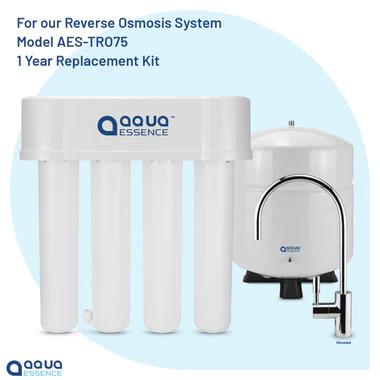The Growing Need for Water Filters in Urban and Rural Environments
Urbanization, industrial runoff, and aging infrastructure have contributed to increasing concerns over tap water safety. Even though municipal systems are tasked with purifying water, many contaminants can persist. In rural areas, untreated wells or borewells can also expose users to unsafe drinking conditions. In both settings, water filters serve as the final checkpoint for ensuring that what comes out of the faucet is truly safe to drink.
How Contaminants Enter the Water Supply and Affect Human Health
Water contamination can occur at multiple stages—during collection, transport, or storage. Industrial discharges often release heavy metals like lead and mercury, which accumulate in water bodies. Agricultural activities introduce nitrates and pesticides, while outdated pipelines can leach rust and chemicals into the water. Long-term consumption of these contaminants is linked to health problems such as kidney failure, developmental issues in children, and neurological damage. Water filters offer a practical barrier against these risks, providing clean, consumable water consistently.
Comparison Between Tap, Bottled, and Filtered Water Quality
Many people rely on bottled water as a safer alternative to tap, but bottled water isn't always more purified. In fact, regulatory standards for bottled water vary significantly by region, and it often comes from the same municipal sources. Additionally, the plastic used in bottles can leach microplastics and chemicals, especially when exposed to heat. Filtered water, in contrast, provides control over quality with less waste. You know the origin, the filtration method, and the upkeep—making it the most transparent and trustworthy option.
Common Myths About Water Filters and the Reality Behind Them
One widespread myth is that water filters remove essential minerals. While some filtration systems may reduce minerals like calcium or magnesium, many are designed to retain them while eliminating harmful substances. Another misconception is that all filters are the same. In reality, each type serves a different purpose. While carbon filters are great for taste and odor, they may not eliminate bacteria. Believing that a simple pitcher filter provides the same protection as a multi-stage system can leave users vulnerable to contaminants.
Maintenance of Water Filters and Why It Matters for Efficiency
A well-maintained water filter performs optimally, but neglecting regular maintenance can render it ineffective. Filters are designed to trap impurities, and over time, these build up and clog the system. This not only reduces water flow but may even release trapped contaminants back into the water. Replacing filter cartridges as recommended and conducting routine checks ensure long-term efficiency. Some modern filters now include LED or digital indicators to remind users of scheduled replacements, making maintenance much easier and foolproof.
Economic Implications of Investing in Water Filters
For many, the upfront cost of a water filter system may seem high, but it's a worthwhile investment when compared to long-term health costs or ongoing bottled water purchases. Hospital bills linked to waterborne diseases or chemical exposure can be financially draining. By installing a reliable water filter, families protect themselves from such medical expenses. Additionally, water filters have become more affordable due to increasing demand, making them accessible even to mid-income households.
Water Filters and Their Role in Environmental Preservation
One of the most overlooked benefits of water filters is their impact on the environment. A single household using bottled water can produce hundreds of plastic bottles a month. These often end up in landfills or oceans, taking centuries to degrade. Water filters reduce dependency on plastic packaging by offering a reusable, long-term water solution. Some manufacturers also produce eco-friendly filters made of biodegradable components, adding another layer of sustainability to the technology.
Conclusion
Water filters are essential tools in the modern home, addressing both health concerns and environmental responsibilities. From improving taste to removing hazardous substances, they deliver unmatched advantages over bottled or untreated water. As awareness grows and technology advances, investing in a high-quality water filter becomes a strategic choice for every household. By prioritizing clean water, you are investing in long-term wellness and contributing to a cleaner planet.

